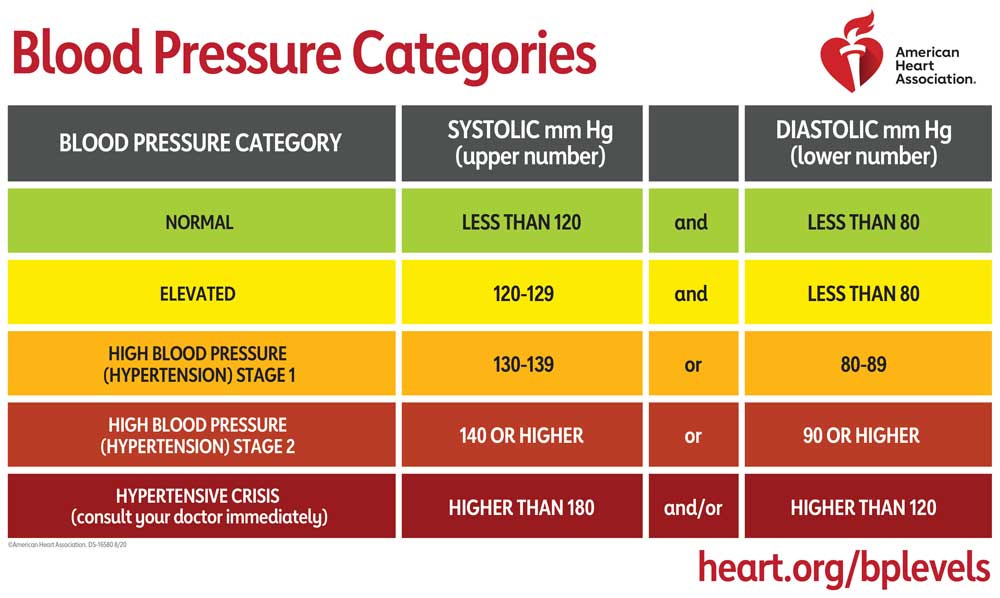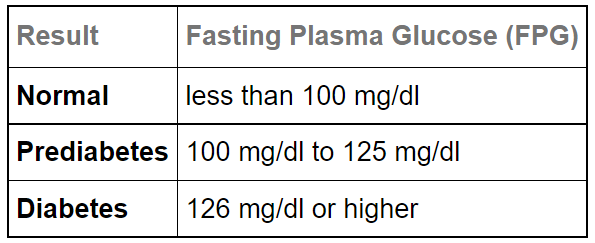FAQ
We Have Answers
For You
FREQUENTLY ASKED QUESTIONS
We Have Answers For You
We Have Answers
For You
Frequently Asked Questions (FAQ)
General Questions
What if I have an after-hours emergency?
If you are experiencing a life-threatening medical emergency, call 911 or go to your nearest emergency room.
Our office has after-hours on-call staff to respond to your medical needs. Please call 281-646-0740 to leave a message for the on-call medical practitioner.
What insurances does Mason Park Medical Clinic accept?
We accept most insurances including Medicare. Please call 281-646-0740 if you have additional insurance-related questions.
Can I still use your services without health insurance?
Yes. Mason Park Medical Clinic is here to serve the health care needs of families in Katy and the Houston area.
We offer two direct pay services, concierge medicine and self-pay, for families with no medical insurance. Learn more to see if concierge medicine or self-pay is the right option for you.
Does Mason Park Medical Clinic offer urgent care?
Yes. We take same-day appointments. Our general practitioners can provide care for a variety of urgent and acute conditions.
Can you refer me to a specialist?
Our general practitioners will evaluate your condition and recommend a course of action. If needed, we’ll provide a referral to a specialist.
Is there a difference between an MD and a DO doctor?
An MD (doctor of medicine) and a DO (doctor of osteopathic medicine) are licensed physicians with a medical degree. One of the main differences between an MD and a DO is their philosophies. DOs take a more holistic approach and focus on prevention, while MDs concentrate on diagnosing and treating medical conditions. Also, DOs need an additional 200 hours of OMT (osteopathic manipulative treatment), training on adjusting and manipulating bodily tissues. Learn More
What is a nurse practitioner?
A registered nurse who has advanced training and education is called a nurse practitioner (NP). Some NPs even have master’s or doctoral degrees.
Nurse practitioners can:
- Act as the primary care provider for their patients
- Assess their patient’s medical conditions, provide diagnoses, and recommended treatment plans
- Write prescriptions, order lab tests, and interprets diagnostic results
- Get board-certifications in a specialty such as family medicine or pediatrics
In addition, nurse practitioners, physician assistants, and primary care physicians work together as a collaborative medical team to ensure they provide the best possible care for their patients.
What is a physician assistant?
A physician assistant (PA) is a medical practitioner licensed to provide care for patients with guidance and oversight from a physician.
Here are just a few examples of how PAs can help patients:
- Perform routine check-ups and annual physicals
- Help patients with acute and urgent care concerns
- Manage and treat long-term illnesses
- Educate patients on health and preventive care
- Write prescriptions, order lab work, and analyze results
Should I use urgent care or go to a primary care doctor?
A primary care physician (PCP) should always be your first choice instead of using urgent care centers or retail health clinics, like CVS or Walgreens.
PCPs have your family and medical history on file so that they can make better, more informed decisions on the best ways to help you. They offer preventive care services like annual physicals, vaccinations, and preventive screenings to take care of your total health. Establishing regular visits will allow your primary care doctor to know you and treat any ongoing medical conditions such as diabetes, hypertension, heart disease.
If your PCP can’t help you, they’ll connect you with specialists who can and will stay involved to make sure you’re getting the best care possible.
Why do I need to do bloodwork to refill my medication?
It’s important to do blood work for several reasons:
- To check if the medication you’re taking is doing its job.
- Ensure the medication you’re taking is not causing any side effects.
- To check your kidneys and liver functions to ensure we don’t need to adjust the dosage since medications filter through the kidneys and liver.
Preventive Care Questions
What is preventive care?
Preventive care helps identify and prevent illnesses or medical problems before becoming severe and harder to treat.
Preventive care services include:
- Annual exams
- Screenings
- Vaccinations
- Lab tests
Most insurances cover 100% of the costs of preventive care services.
What is a physical exam?
A physical exam is a comprehensive test performed by your primary care provider once a year to check your overall health. Annual physicals are an essential part of preventive care, so most insurances cover 100% of the cost.
Here are a few things you can expect your medical provider to do during the exam:
- Check height and weight
- Ask questions about medical history, family history, lifestyle, etc.
- Check vitals such as temperature, blood pressure, pulse, and heart rate
- Order blood work such as complete blood count, comprehensive metabolic panel, lipid profile, etc.
- Perform an EKG or stress test depending on your age/risk factors
What is a well-woman exam?
A well-woman exam is a preventive exam that screens for breast and gynecological diseases for women ages 21+ annually. A well-woman exam can include a breast exam, a pelvic exam, a Pap smear, or a mammogram, depending on age and risk factors.
Is it important for men to get an annual check-up?
Yes. Men need to get an annual exam. Studies show that a higher percentage of men choose not to visit a doctor for annual check-ups than women. They tend to avoid visiting a doctor until it is necessary to relieve pain or discomfort. Learn More
In addition to annual exams, men should speak with their medical provider about the following tests and screens:
- Skin cancer screen
- Prostates cancer screen
- Blood glucose test
- Colorectal cancer screen
- Cholesterol test
- Testicular cancer screen
Do you offer geriatrics care?
Yes, we offer geriatrics wellness exams.
The exams include:
- Checking vitals
- Blood work
- Screenings
- EKG
Do you offer health care for children?
Yes, we offer children’s health and wellness services for kids ages 5-17.
These services include:
- Well-child check-ups
- Immunizations
- Screenings
- Childhood nutrition
Diabetes Questions
What is diabetes?
Diabetes is a long-term (or chronic) condition where your body can’t process food correctly to use for energy. When you eat, your food gets broken down into sugar (or glucose) and released into your bloodstream. When your blood sugar is high, this signals the pancreas to release insulin. Insulin helps glucose get into the cells of your body to use as energy. When you have diabetes, either your body doesn’t make enough insulin or can’t use it well. Learn More
What are the types of diabetes?
There are three main categories of diabetes:
- Type 1 diabetes accounts for about 5% of all diagnosed cases. Type 1 is usually diagnosed in children and young adults, although it can occur at any time. Individuals with type 1 diabetes typically need insulin from an injection or a pump to control their diabetes.
- Type 2 diabetes accounts for about 95% of all cases diagnosed in adults. Numerous studies show that eating healthy, exercising, losing weight, and using any prescribed medication can help prevent or control type 2 diabetes.
- Gestational diabetes affects about 2% – 10% of pregnant women. Gestational diabetes can cause health problems for the mother and child. Kids with mothers who had gestational diabetes are at higher risk of being obese or getting type 2 diabetes. Even though it goes away after pregnancy, about half of all women with gestational diabetes are at risk of getting type 2 diabetes later in life.
What are the symptoms of diabetes?
If you have any of these symptoms, contact us to get tested for diabetes.
- Blurry vision
- Extreme fatigue
- Excessive nighttime urination
- Extreme hunger or thirst
- Rapid weight loss without trying
- Numbness or tingling in hands or feet
- Extremely dry skin
- Slow healing sores
- More infections than normal
How is diabetes diagnosed?
Here are a few ways that diabetes can be diagnosed:
- Fasting plasma glucose (FPG) test – this test measures your blood glucose level at a single point in time. It is best to have this test done in the morning after fasting for at least 8 hours to get the most reliable results.
- A1C test – this blood test provides your average levels of blood glucose over the past three months. An A1C test does not require fasting. However, before ordering an A1C test to diagnose diabetes, your doctor will consider some risk factors such as age or if you have anemia. This test is not accurate for individuals with anemia.
- Random plasma glucose (RPG) test – an RPG test does not require fasting, so some medical providers prefer to use it to get quicker diabetes diagnoses for their patients.
What risk factors increase my chances of getting diabetes?
Some factors that put you at higher risk of getting diabetes are:
- Having a family history of diabetes
- Come from certain ethnicities such as African American, American Indian, Asian American, Pacific Islander, or Hispanic/Latino American
- Being obese or overweight
- Lack of physical activity
- Have a history of gestational diabetes
- Have high blood pressure or abnormal cholesterol levels
What is the difference between pre-diabetes and diabetes?
The difference between prediabetes and diabetes is the level of blood sugar (or glucose) in your body. Prediabetes is when your glucose levels are above normal but not high enough to be considered type 2 diabetes.
Fortunately, prediabetes is preventable and reversible through healthy lifestyle changes such as:
- Eating nutrient-rich foods
- Exercising
- Getting plenty of sleep
- Eliminating tobacco and alcohol use
- Reducing stress.
Hypertension Questions
What is high blood pressure?
High blood pressure (or hypertension) occurs when there’s a force of blood pushing against the walls of the arteries.
A normal blood pressure is less than 120/80 mmHg. Blood pressure that is consistently in the higher than normal range is considered hypertension. People with hypertension are at higher risk of developing heart disease or stroke.

Source: American Heart Association
What causes high blood pressure?
Many risk factors can cause high blood pressure (hypertension), but here are just a few of the most common ones:
- Poor nutrition; eating an unhealthy diet of foods rich in saturated fats, refined carbohydrates, and sugar.
- Sedentary lifestyle with little to no physical activity
- High-stress levels
- Smoking or using illegal drugs
- Consuming excessive amounts of alcohol
- Family history of hypertension
What are the symptoms of high blood pressure?
Known as the “silent killer,” hypertension does not have any specific symptoms.
If you suspect that you have high blood pressure, contact a primary care provider specializing in hypertension for a professional diagnosis.
Our managing physician, Dr. Quyen Trinh, DO, is nationally recognized by the NCQA for heart/stroke management and care. Contact us to schedule an appointment with Dr. Quyen Trinh.
What is the danger of high blood pressure?
Persistent or uncontrolled hypertension (or high blood pressure) can lead to serious conditions including but not limited to:
- Heart attack or stroke
- Kidney disease
- Aneurysm
- Heart failure
- Metabolic syndrome
- Dementia
How is high blood pressure treated?
Treatment for high blood starts with making healthy lifestyle changes and, in some cases, with medication:
- Eating a healthy diet low in sodium and fat; containing more fruits, vegetables, lean protein, and whole grains
- Losing weight and incorporating exercise (such as brisk walking)
- Stop smoking or using illegal narcotics
- Consuming less alcohol
- Seeking treatment for sleep apnea
- Adding medication, if needed (seek a medical professional that specializes in treating hypertension)
ASK THE EXPERTS
How Can We Help You?
Mason Park Medical Clinic is here to serve the health care needs of individuals and families of the Katy and Houston communities. If you have questions about our clinic, our services, or any medical-related concerns, let us know. We’re happy to help!
What's your question?

Contact a Patient-Focused Whole Health Clinic in Katy
At Mason Park Medical Clinic, your health is our top priority.
We hope to earn your trust and maintain it through great doctor-patient relationships and excellent patient care. When you’re looking for the best health care in Katy and the Houston area, we’ll be there for you.
Are you ready to make an appointment with a whole health Katy, TX clinic you can count on? Contact us at (281) 646-0740 today.
INSURANCES
ACCEPTED




















